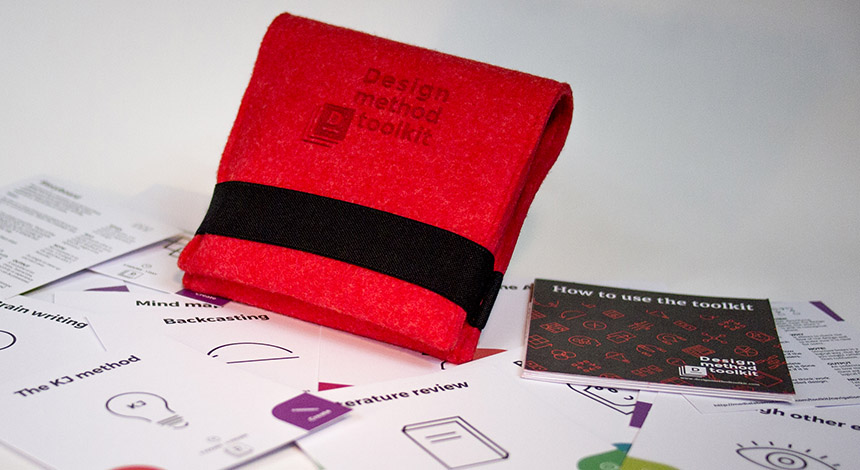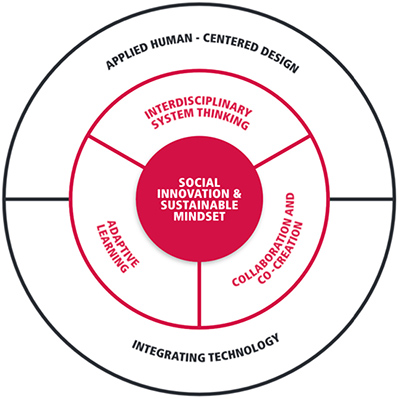Short Course
SCREAM! Build agile and creative teams (1 day)
Optimize your teams’ impact and combine an agile mindset with creative power!
From goals to methods, from methods to results, from results to impact.
Are you and your team(s) ready to make a real impact, but don’t know where to start? Let us invite you to start right here, with us.
This course will make your team effective and creative for complex challenges in a digital era. In an ideal design process there is a constant flow between researching and creating. SCREAM! facilitates this flow with a structured ‘common language’ for multidisciplinary teams.
Digital Society School introduces the SCREAM! Approach that enables multidisciplinary teams (with members from various business units and background) to get started and enrich the design and innovation process. SCREAM! is introduced in combination with our structured and successful Design Method Toolkit, that will enable you to plan and apply design methods in your projects and create impactful solutions within short iterations.
Tackle Complexity With Creative Teams
Make it easier for you to team up with people from other disciplines and business units and tackle complex challenges. Take away guidelines to foster a culture of creativity within your team.
Build High Performing, Agile Teams
In a fast paced, agile structure within short time-boxed iterations, use design methods to make your team more efficient in the creative process. Take away an approach to guide your design process and team work for complex challenges in a digital era.
Design Method Toolkit
The methods that have been integrated in SCREAM! come from the widely used Design Method Toolkit. This toolkit enables you to get started and enrich any design process. A collection of design and research methods: categorised to help select and time-based for careful planning. Plan and execute design research, ideation, experimentation and creation within short iterations. Detailed task-based descriptions help teams divide and assign tasks between team members. This makes the methods from the Design Method Toolkit perfect for lean, agile environments and multidisciplinary teams.

What you will learn:
- The basics of SCRUM in combination with the creative (design thinking) process;
- As a team, you will work on a design challenge in which you will experience the different design phases, issues, complexity, etc.;
- Set goals, choose methods and work in iterations while making sure each choice is evidence-informed;
- Work in sprints with SCRUM elements and creative tools to feed research, tangible prototyping and translation from
- Set up sprint plannings that are fit for complexity using design methods;
- Run translate sessions half way each sprint;
- Use the design methods as a standard for executing and documenting your process;
- Take away a common language that will enable other teams and individuals within the organisation to use and build on the insights from your design process and hence prevent ‘waste’;
- Think big, start small and act fast!
Covered DSS competencies:
- Applied Human Centered Design
- Interdisciplinary System Thinking
- Collaboration and Co-creation
- Create solutions for social impact
What you will do:
The course consists of 4 sprints that are trained in blocks of 1,5 hours.
- From goals to methods
- From methods to results
- Translate and transfer
- Review and retrospective
During the sprints you and your team will work on a predetermined challenge (related to the Sustainable Development Goals). In the sprints you will be guided by theory, practical examples, useful methods and fun!
Methods used
- The Break-up Letter
- Room full of balloons
- Building bridges
- Stakeholder mapping
- Concept sketch
- Harris profile
- Empathy in action
- Lo-fi prototyping
Whom is this course for?
You are a professional who works in a multidisciplinary team, or you are a team looking for different ways to become more effective, while being as creative as possible to reach a maximum impact on the more complex challenges your organization and our world in general faces.
Questions you may have
Q: What if I am not “creative”, or a maker, or a designer?
A: Perfect, then this is for you. We’ll show you that anyone can make things tangible with easy-to-implement tools and steps
Q: Design methods? What do you mean?
A: Don’t be scared! Design methods are never only used by designers. Design is naturally good in glueing disciplines together, sensing what people need and building empathy with target users. Therefore we use design methodology to make working across disciplines or within multidisciplinary teams more effective and more natural.
Q: How will this course help us forward in just 1 day?
A: Obviously, we are not magicians. However, we have done this course with hundreds of people and have noticed that even in 1 day, individuals and teams catch the most important concepts and are able to push their impact and innovative powers forward. We dare you to give it a try!
Meet your instructors
Marco van Hout
Experienced trainer and design lead with over 15 years of experience. Co-founder of DSS and Global Goals Jam, community liaison for World Design Organization. Initiatior of our Design Method Toolkit and SCREAM! I make sure that all DSS programmes result in engaging, meaningful and impactful (lifelong) learning experiences, for students and professionals. I integrate the Sustainable Development Goals, design methodology and the latest technology in our work.
Olina Terzi
With a background and experience in Architecture and professional experience on design solutions in African, Chinese, European and North American contexts, I’m currently applying my design and problem-solving skillset to face digital transformation challenges in the corporate world. As a Digital Transformation Designer and Smart Cities Researcher at the Digital Society School, part of the Amsterdam University of Applied Sciences, I am currently conducting applied research, designing digital products and services in the field of urban technology.
